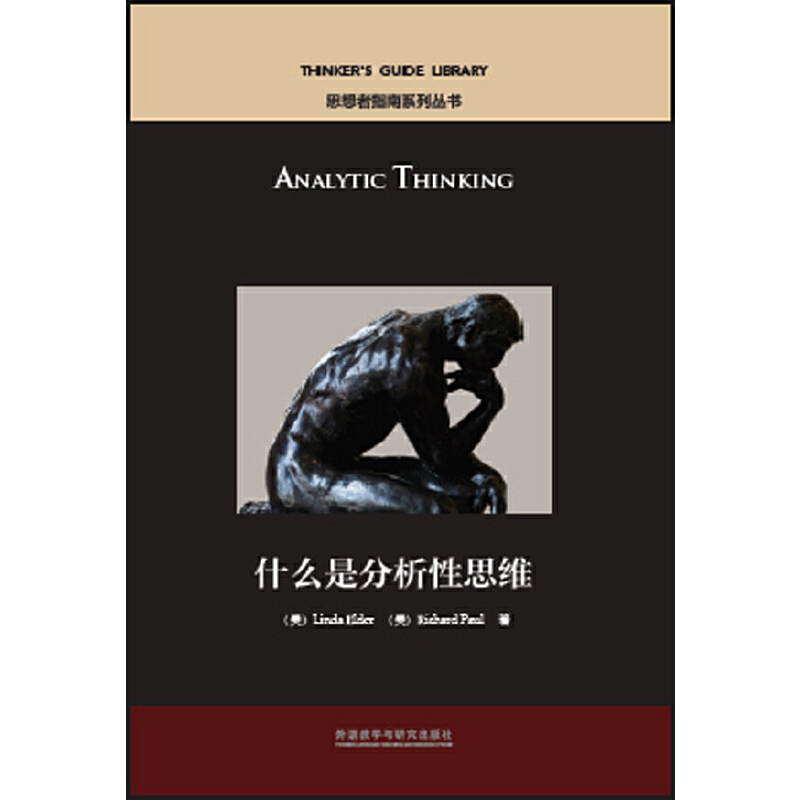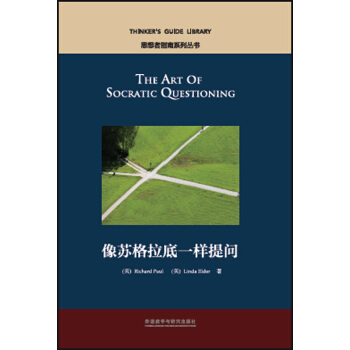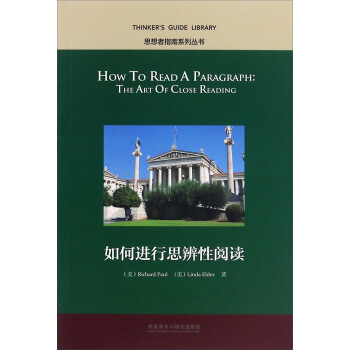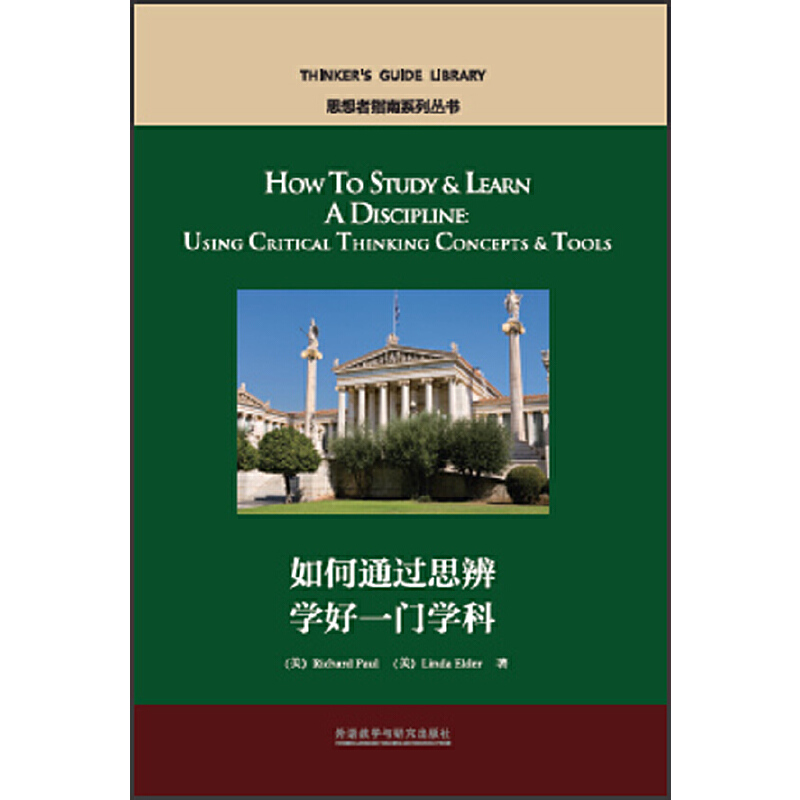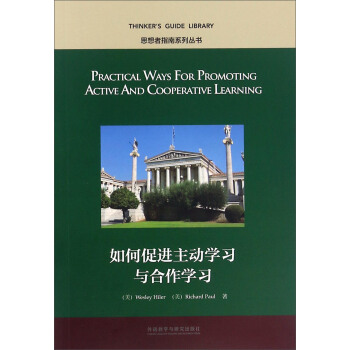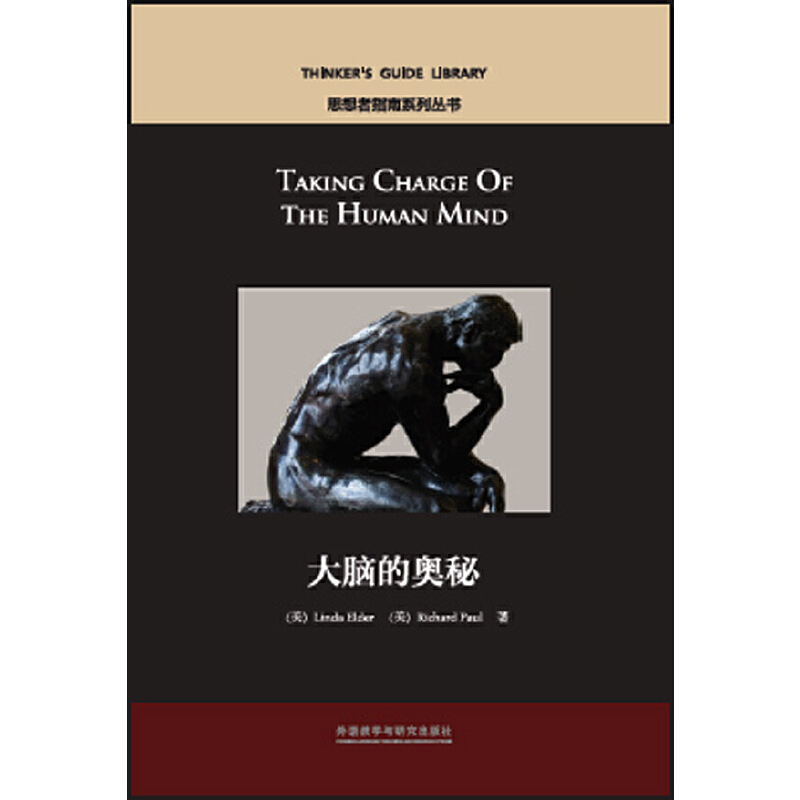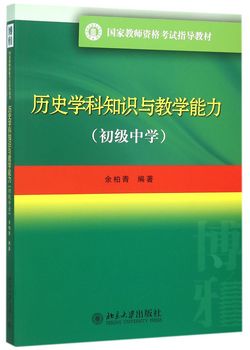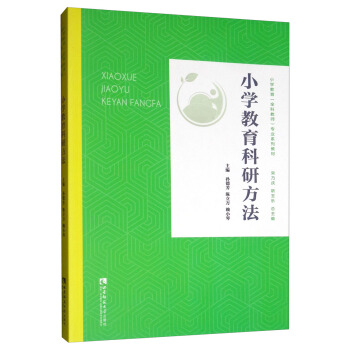什么是分析性思维
定价:¥9.90
作者: Richard Paul,Linda Elder
出版时间:2016-05
出版社:外语教学与研究出版社
- 外语教学与研究出版社
- 9787513574709
- 238249
- 2016-05
- 50
内容简介
“思想者指南系列丛书”由外研社原版引进,供读者培养、提升思辨能力(批判性思维能力)。作者Richard Paul和Linda Elder是两位专门从事思辨能力研究的专家,他们创办的专门研究和培训思辨能力的机构Foundation for Critical Thinking享誉全球。Richard Paul和Linda Elder认为,思辨能力并不是玄虚的存在,而是有方法可依、有规律可循,他们将长期研究发现并总结的方法与规律凝聚在了“思想者指南系列丛书”当中。“思想者指南系列丛书”共21本,分为基础篇、大众篇、教学篇,分别针对入门基础学习者、社会大众读者、广大教师及学生阅读学习。“思想者指南系列丛书”语言简洁、内容明晰、易于阅读、方便携带、价格实惠,是学习思辨能力不可多得的好书。
目录
Part I: Understanding the Basic Theory of Analysis........................1This section provides the foundational theory essential to analysis. It delineates the eight basicstructures present in all y a Guide on Analytic Thinking?..........1Why the Analysis of Thinking Is Important..........2To Analyze Thinking We Must Learn to Identify and Question Its Elemental Structures.........4To Evaluate Thinking, We Must Understand and Apply Intellectual Standards..........535 Dimensions of Critical Thought..........7A Checklist for Reasoning..........9Part 2: Getting Started—Some First Steps. ..........11This section enumerates the most important foundational moves in ink About Purpose..........11State the Question..........12Gather Information..........13Watch Your Inferences..........14Check Your Assumptions..........15Clarify Your Concepts..........16Understand Your Point of View..........17Think Through the Implications..........18Part 3: Using Analysis to Figure Out the Logic of Anything..........19This section provides a range of sample analyses (as well as templates for analysis).The Figuring Mind...........19Figuring Out the Logic of Things..........20Analyzing Problems..........23Analyzing the Logic of an Article, Essay or Chapter..........25Analyzing the Logic of a Textbook..........29Evaluating an Author's Reasoning..........30Analyzing the Logic of a Subject..........31Part 4: Taking Your Understanding to a Deeper level..........40This section explains the elements more comprehensively, differentiating skilled from alyzing and Assessing..........40Distinguishing Between Inferences and Assumptions..........48Conclusion..........50

